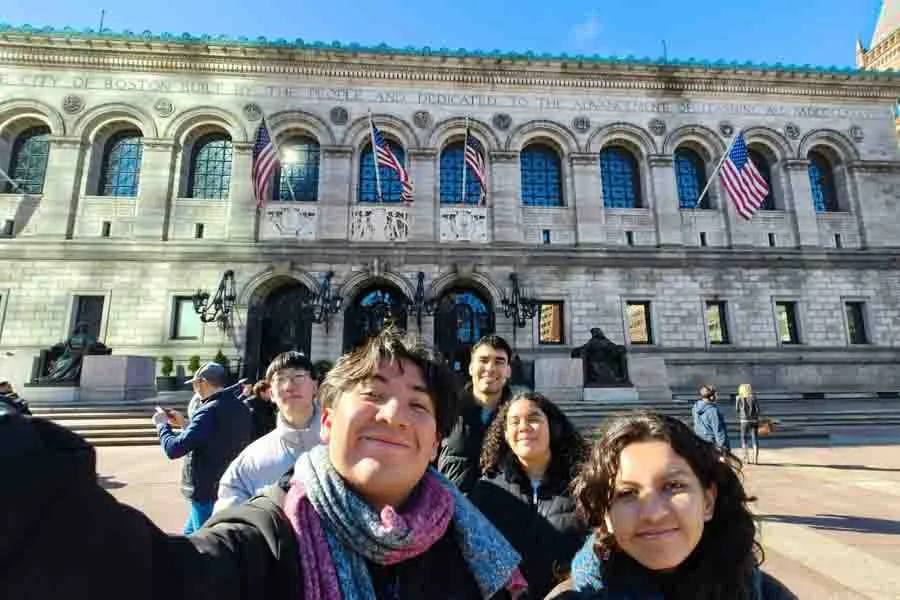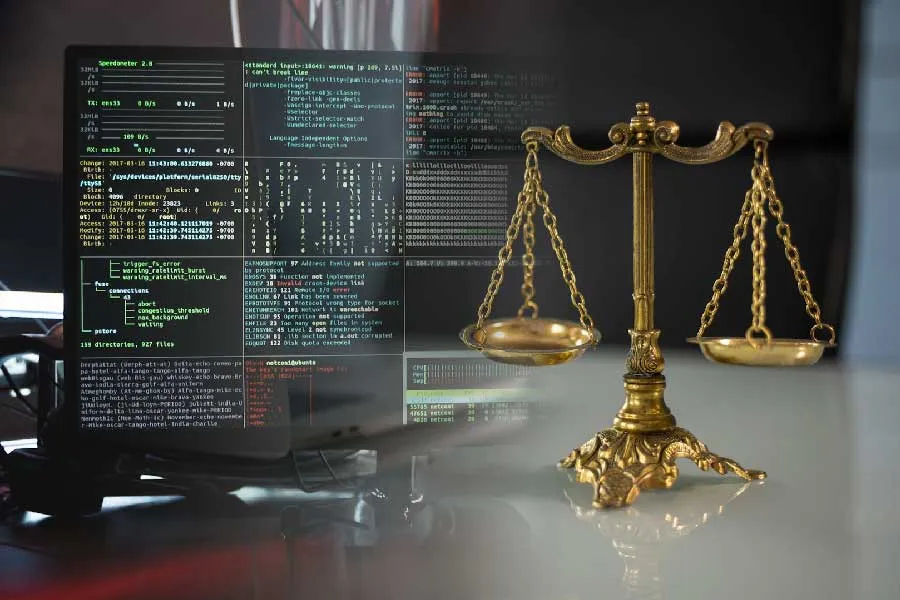Engineering students from Tecnológico de Monterrey’s Santa Fe campus participated in the Massachusetts Institute of Technology (MIT) Policy Hackathon, aiming to develop a technological solution to support prisoners through various legal resources in the United States.
These students developed a statistical index to identify and classify prisoners who are eligible for sentence reductions.
The Policy Hackathon aims to address these kinds of social challenges by analyzing data and public policy. It’s organized by MIT’s Institute for Data, Systems, and Society and the Technology and Policy Program.
“It wasn’t just a technological project; it was also political. We used technology to work together with the law and the government,” says Sofía Moreno, a student at the Tec’s Santa Fe campus.
The team from the Santa Fe campus traveled to Boston to participate in the competition after winning first place in MIT challenge HackMX 6, a student hackathon held on the Tec’s State of Mexico campus.

Tec student index aims to support prisoners
Do Han, Eduardo Porto, Nicole Dávila, Omar Sánchez, and Sofía Moreno, Computer Technology Engineering students at Tec Santa Fe, participated in the Redo.io business challenge during the MIT Policy Hackathon.
Redo.io is a legal technology company from California. Its databases and analysis tools are designed to help prosecutors, public defenders, lawmakers, and academics study the prison population.
During the challenge, the students worked to support Stanford Law School’s Three Strikes project, which aims to help people incarcerated under California’s Three Strikes Law.
This law mandates life imprisonment for any crime, regardless of its severity, if the accused has two previous convictions for crimes defined as serious or violent, according to the Stanford project website.
Stanford Law School developed the Second Look Reform through the Three Strikes Project, legislation that allows sentences to be reviewed after a person has served part of them.
“We used technology to work with the law and the government.” - Sofía Moreno
“If someone is convicted for stealing food and is sentenced to life imprisonment, they can request a new reduced sentence or even be released. They asked us to find a way to help these people,” says student Sofía Moreno.
According to the students, their project aimed to complement an open-source model from Redo.io that identifies candidates eligible for case review.
They worked for 24 hours to create a statistical index that allows the model to classify cases according to the risk to which each person is exposed.
“We’ve developed an index that uses public data on prisons and prisoners to help Redo.io classify people who may be eligible for re-sentencing.
“If the candidate is an elderly person or is in a violent prison, they are listed as a high priority,” adds Sofía Moreno.

Moreover, the Tec Santa Fe campus team produced a memo explaining how their proposal will impact the law.
They presented their technological solution to the directors of Redo.io and Three Strikes Project on the last day of the competition, held from November 15 to 17, 2024.
Students traveled to MIT after winning the Tec hackathon
These Tec Santa Fe students were invited to participate in the Policy Hackathon after winning a challenge from the MIT Low-Income Firms Transformation (LIFT) Lab at HackMX 6, a student hackathon held at the Tec’s Mexico State campus from October 25 to 26, 2024.
The MIT LIFT Lab aims to tackle poverty in developing countries by helping small and medium-sized enterprises to survive.
Their laboratory challenge in HackMX 6 was to support the development of Lupita, an artificial intelligence program from the LIFT Laboratory that aims to help grocery stores in Mexico improve their inventory control and finances.
“The challenge with the most significant social impact was the MIT LIFT Lab. We really liked the project, especially being able to help small businesses,” says student Omar Sánchez.
According to the Santa Fe campus team, during the two days of the competition, they created a prototype of Lupita, a tool designed for mobile devices that controls store inventories and generates purchase receipts using voice and image recognition systems and artificial intelligence.
Student Eduardo Porto, who participated in his first hackathon at HackMX 6, highlights the importance of tackling new challenges regardless of the result.
“Personally, what I recommend the most is that you pluck up the courage to participate in whatever you want. It’s worth having this experience for the first time, whether it results in your first failure or your first success,” concluded Eduardo.
YOU’LL ALSO WANT TO READ:





